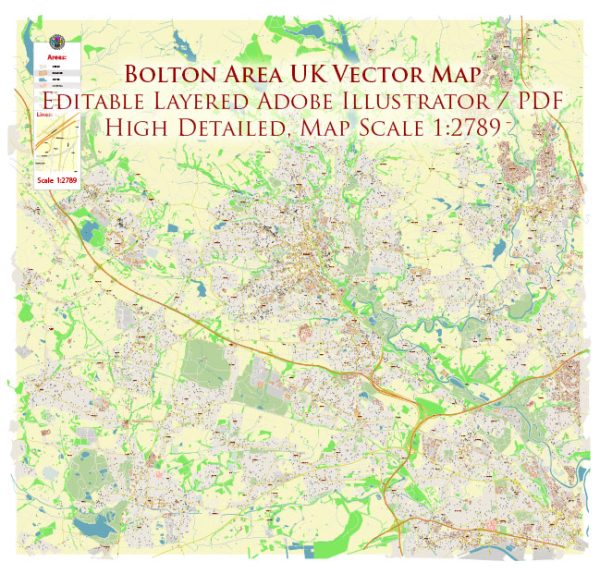Bolton is a town located in Greater Manchester, England, with a rich history of urban development. The town’s growth and development can be traced back to several key periods and milestones:
- Medieval Origins: Bolton’s history dates back to medieval times, with the town first mentioned in historical records in the 12th century. It was a small market town surrounded by agricultural land and was part of the barony of Manchester. During this period, the town’s economy was largely based on agriculture and the textile industry.
- Industrial Revolution: The 18th and 19th centuries brought about significant changes to Bolton’s urban landscape. The town experienced rapid industrialization, primarily driven by the cotton and textile industry. Many mills and factories were established, leading to a substantial increase in population as people moved to the area in search of work. The town’s urban development was characterized by the construction of cotton mills, terraced housing for workers, and the development of infrastructure like railways and canals to facilitate the transport of goods.
- Victorian Era: The Victorian era saw further expansion and urbanization in Bolton. The town’s population continued to grow, and its urban layout began to take on a more organized structure with the establishment of parks, civic buildings, and a variety of public amenities. This period also witnessed the construction of notable landmarks like the town hall and the Octagon Theatre.
- 20th Century: The 20th century brought continued growth and development to Bolton, with the town diversifying its economy beyond textiles. The decline of the textile industry led to the redevelopment of old mill buildings into residential and commercial spaces. The town’s infrastructure and transportation networks continued to modernize, including the establishment of the motorway system and improvements in public transport.
- Post-War Development: After World War II, Bolton, like many other British cities, underwent post-war reconstruction and redevelopment. This period saw the construction of new housing estates, schools, and healthcare facilities to accommodate the growing population.
- Contemporary Urban Development: In recent decades, Bolton has continued to evolve and adapt to changing economic and social trends. The town has seen urban renewal projects, the expansion of higher education institutions, and the development of modern shopping and leisure facilities.
Overall, Bolton’s history of urban development reflects its transition from a medieval market town to an industrial powerhouse during the Industrial Revolution, followed by a more diversified economy in the 20th and 21st centuries. The town’s architecture and infrastructure have evolved accordingly, resulting in a dynamic urban landscape with a mix of historical and contemporary elements.


 Author: Kirill Shrayber, Ph.D. FRGS
Author: Kirill Shrayber, Ph.D. FRGS